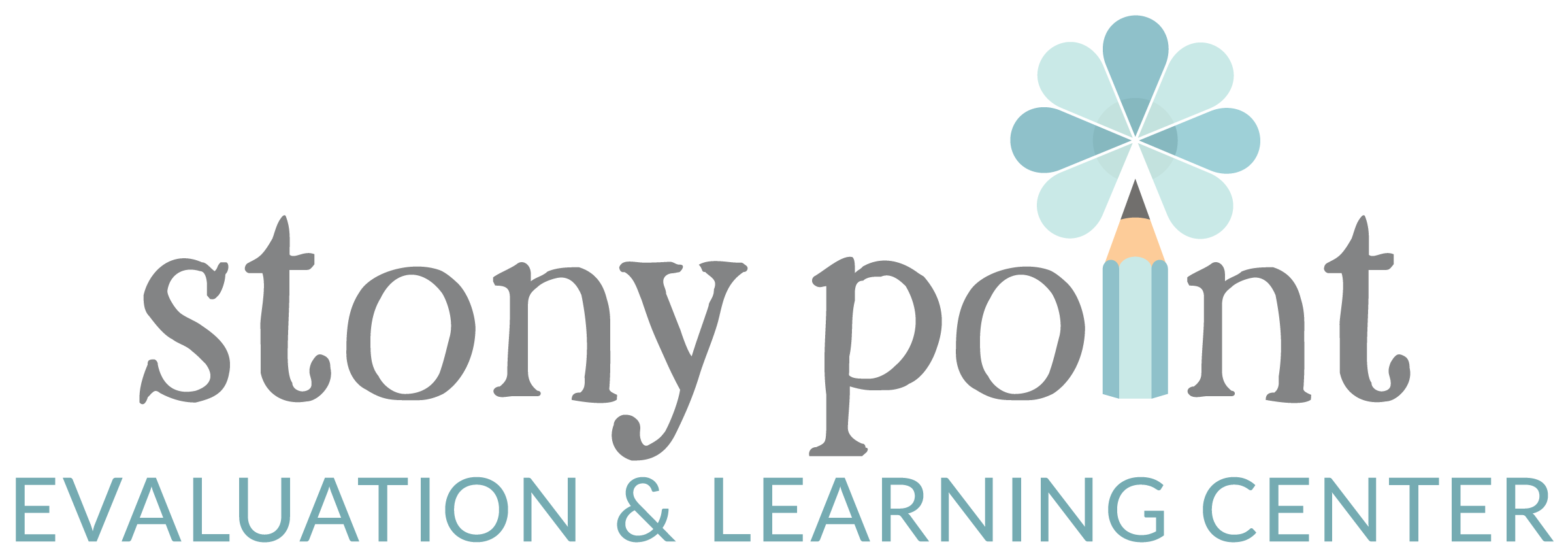Services
Psychoeducational Evaluation


Admissions/Gifted Testing
Stony Point Evaluation & Learning Center provides admissions testing for school application and placement. This is a requirement of many independent schools and typically involves administration of an intellectual assessment such as the WPPSI-IV or WISC-V.
ADHD Evaluation


Social-Emotional Evaluation
The Stony Point Evaluation & Learning Center also offers social, emotional, and behavioral evaluations for children, adolescents, and adults. The purpose of this evaluation is to better understand underlying factors impacting an individual’s ability to function adaptively in the home, school, or community setting. This is often a recommendation made by a treatment provider (e.g., therapist, psychiatrist) in order to clarify diagnosis or to help determine the best course of treatment.
AUTISM EVALUATION
This evaluation is designed to determine if a diagnosis of Autism/Autism Spectrum Disorder is appropriate. The evaluation will help to identify the individual’s strengths and challenges and what recommendations can be made to improve their well-being. We provide autism evaluations for school-age children (starting in kindergarten), adolescents, and adults. This includes an assessment of cognitive functioning (e.g., memory, learning efficiency, processing speed, auditory processing, visual-spatial processing, abstract reasoning, verbal skills, etc.). It also includes direct observation using the Autism Diagnostic Observation Schedule (ADOS-2) and/or MIGDAS-2 structured observation techniques. Social pragmatic language testing is also included, which measures an individual’s language skills in the context of social functioning (e.g., awareness of basic social routines, understanding/noticing social cues, using social routine language, and understanding and expressing emotions, etc.). Additionally, testing will also include exploration of other possible causes for the individual’s symptoms as well as possible co-occurring diagnoses.


EDUCATIONAL THERAPY
Per the most recent statement from the Association of Educational Therapists (AET), “The ultimate goal of educational therapy is to foster the development of self-confident, independent individuals who feel positively about themselves and their potential as lifelong learners.” Educational therapy at Stony Point Evaluation & Learning Center provides intervention services that seek to improve a student’s overall executive function and provides individualized instruction to children and adults diagnosed with neurodevelopmental disorders such as a Specific Learning Disorder (e.g., dyslexia, dyscalculia, and dysgraphia) and Attention-Deficit/Hyperactivity Disorder (AD/HD). A 12-week course is designed to support the individual needs of each student. These might include but are not limited to sessions that target the development of the following: attention, working memory, planning/organization, emotional control, time management, goal setting, and study skills. As research has shown that improved executive function is inextricably linked to social and emotional learning, each educational therapy session also includes “Mindful Minutes” that specifically focuses on positive coping strategies and stress reduction. All sessions are conducted by our Certified Professional Educational Therapist who is highly trained to develop intervention plans that address the broader aspects of an individual’s learning (i.e., combining academic learning strategies with social-emotional supports). For additional information about Educational Therapists and the services they provide, please visit the following website:
